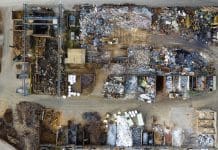In a recent interview with Bianca Wong, global head of sustainability at Kingspan, PBC Today delved into the issues surrounding building emission stagnation in EU countries in response to the recent Global Retrofit Index report, and Kingspan’s strategic approach to sustainability
With a decade-long commitment to Kingspan, Wong brings valuable insights into the challenges hindering emission reductions and sheds light on Kingspan’s role in addressing these issues.
Building emission reduction challenges in the EU
Bianca identifies a key challenge in the stagnation of building emission reductions across key EU countries.
Slow progress in reducing building emissions is attributed to insufficient action and investment in scaling renovations.
She emphasises the need for progressive policies, financial tools, and skilled workforces to overcome barriers: “You need to have the right progressive policies and implementation plans in place to increase retrofits rates. You also need the resources and the skilled workforce to ensure that it’s executed correctly as well.”
Framework and financing are essential, which needs to be set at a holistic level: “It needs to include investors, banks, government physical policy, subsidies for the very vulnerable consumers, et cetera.
“I also think that we need government-backed grants and low-interest loans that can be made available to support homeowners as well with the cost of the renovation. The private sector needs to be driven by regulation as well.”
Raising public awareness of the benefits of retrofit
Awareness is also key to emission reductions. There is a general lack of understanding amongst the public of the benefits of retrofit to improve efficiency and reduce bills which needs to be addressed: “say you might choose to renovate your kitchen and your bathroom, and there’ll be no kind of energy saving or anything to do with that. The same consideration may not be given to upgrading the insulation in your attic or your home.
“I think there’s a lot of work to maybe raise awareness and make it easier for homeowners to understand the benefits and be able to fund renovation.”
Kingspan’s approach to increasing emission reductions
As the global head of sustainability at Kingspan, Bianca outlines the company’s strategy involving climate mitigation and adaptation.
The company focuses on driving decarbonisation through its operations and value chain while also modelling and understanding potential physical risks to the business in different warming scenarios.
“The role that Kingspan play to support the sector is to provide solutions to the market to help reduce operational energy, which is what we do through our thermal products like insulation, daylighting products, solar PV, et cetera.”
Kingspan also supports global initiatives such as the Advancing Net Zero programme, led by WGBC. The program encourages companies, governments, and cities to commit to net-zero emissions by 2050, with interim targets set for 2030.
Initiatives and partnerships for retrofitting
As manufacturers of insulation, daylighting and solar PV for buildings, Kingspan has a commitment to continuous innovation, improving technical performance, whilst minimising the environmental footprint of its products.
“Having a broad range of solutions and expertise helps us to support retrofit for different building types and scenarios.”

Kingspan’s role in climate commitments
Acknowledging the report’s findings that many countries, including the UK, may not meet their net-zero climate commitments, Bianca emphasises Kingspan’s commitment to science-based targets.
The company actively engages in upstream efforts within its value chain, advocating for higher ambition, and supporting key initiatives that raise awareness about the crucial role of buildings in achieving decarbonisation.














